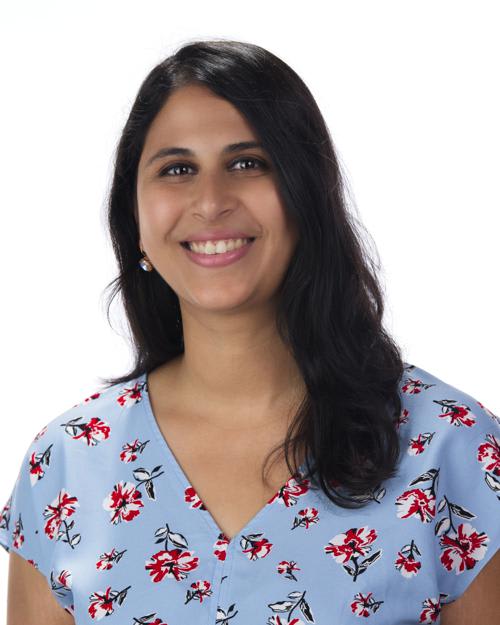
Read Neha Damle's, M.D. guest commentary, featured in the Napa Valley Register, where she emphasizes the importance of early breast cancer detection.
One in eight women will be diagnosed with breast cancer in their lifetime, making it the most common cancer among women.
Fortunately, advances in screening, treatment and educaiton have made early detection more accessible and outcomes more promising than ever.
In honor of Breast Cancer Awareness Month, I want woment to know that, whether you are concerned about your risk, navigating a diagnosis or simply seeking to learn more, knowledge and vigilance are essential tools for protection your well-being.
Screenings and early detection
Breast cancer can affect any adult, not just women of a certain age. While most people in their twenties and thirties may not need routine screening mammograms unless there is significant family history, being young does not mean you are immune to breast cancer.
The American Cancer Society recommends starting mammograms at age 40, or 10 years before the earliest age of diagnosis in your family. We offer 3D mammography at Providence Queen of the Valley Medical Center, which enhances detection by allowing for a more detailed view of the breast tissue.
Annual mammograms remain the standard for early detection, but those with a higher risk may consider additional imaging such as MRI or ultrasound.
Year-round, we partner with local providers to steramline referrals and reduce delays. It's important for women to know that we provide free mammograms and other breast health services to people who are uninsured or underinsured through our partnership with the California Breast Cancer Early Detection Program. You can ask your provider for details or call 800-511-2300 to learn more.
Self-exams
Regardless of age, understanding your own breast health and recognizing what is normal for you is essential. While self-exams are not universally recommended, I encourage my patients to be familiar whith how their breasts normally look and feel so they can more easily recognize changes that may need medical attention.
Changes such as lumps, dimpling or nipple discharge can be early indicators of cancer. If something feels different, it's worth discussing with your provider.
Advanced care, close to home
My team and I understand how overwhelming a breast cancer diagnosis can be. Attentive care and thoughtful guidance are at the heart of our approach. We work with a multidisciplinary team of breast health specialists — including additional oncologists, radiologists, nurse, technologists and more — to develop individualized plans.
Queen of the Valley offers a nurse navigator to support every breast cancer patient, ensuring they have a guide from diagnosis through treatment. Whether it's coordinating appointments, finding transportation, connections to financial assistance or simply offering a listening ear, our nurse navigators play a vital role.
Our goal is not only to treat the cancer, but to help people re-engage fully back into life. Queen of the Valley's Soules Family Cancer Wellness Program offers a three-month membership at Active Wellness Center (which includes access to group classes such as yoga, Pilates, meditation, etc.), consultation with a registered dietician, counseling services, a personalized exercise program and more.
I join our community in expressing my gratitude to the anonymous donor who recently gave an incredibly generous gift to Queen of the Valley Foundation to grow and enhance cancer care in our community. This gift, which will increase the availability of healing programs and services for all cancer patients, is bringing hope to men and women across Napa.
A final word
While breast cancer is a challenging diagnosis, and every patient's journey is unique, advances in research and treatment continue to offer new hope, and most breast cancers are detected at an early stage, with excellent prospects for a cure.
Make a mammogram appointment by calling 800-538-0476 or learn more about our breast cancer program at providence.org/napacancer.


















